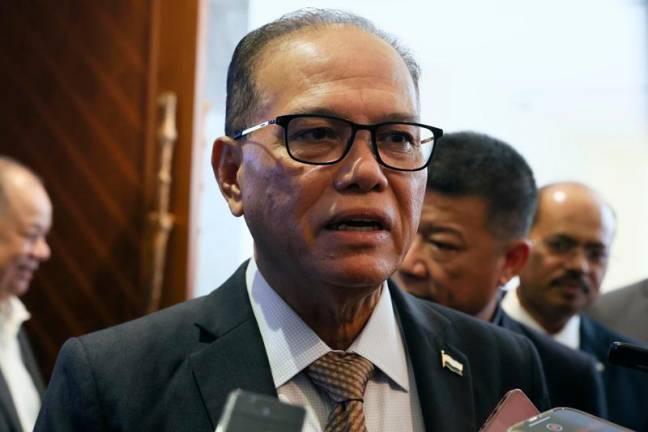SUMMER has been sweltering in parts of Europe and the United States. Dangerous conditions have been forecasted in Arizona, California, Nevada and Texas.
Greece was forced to close the historical Acropolis to protect tourists from the fierce heatwave.
Climate change is rearing its inconvenient truth: the alarming rise in temperatures will trigger erratic global weather patterns.
No country, rich or poor could escape its wide-ranging implications for the foreseeable future.
We are blessed, for our geographical location situates us away from the Ring of Fire.
As a result, we enjoy endless summer and are free from cyclones, earthquakes and volcanic eruptions.
The recurring floods and Sabah earthquake in 2015 challenge this narrative.
Rapidly rising flood waters submerged houses, roads were impassable, people were stranded and families were separated.
Homes, vehicles, businesses and infrastructures were damaged.
Malaysia is committed to achieving net-zero greenhouse gas (GHG) emissions as early as 2050.
Delivering on this will impact our fiscal health given that approximately 20% of our economy comprises hard-to-abate industries.
Economic activities such as transport, agriculture, industrialisation, waste, power generation and energy production are among Malaysia’s GHG emitters based on Biennial Report 2019.
There is a need to reframe the debate about climate change and its meaning for Malaysia.
Aside from technology, fiscal policy is equally important in the solution.
Climate change-related spending is expected to jump from the existing baseline to support the transition to a low-carbon economy. Should this be done through borrowing?
If the government is to finance the entire investment for low-carbon transition, public debt would explode by 2050. Should we impose higher taxes?
Hypothetically, we could explore putting a price on carbon, improving taxation of businesses and strengthening tax compliance to ensure everybody pays their fair share. Yet, these might be considered drastic reforms.
Energy pricing is also key, which is good for public coffers and the planet.
More emphasis on energy taxation and less reliance on subsidies.
Lastly, we also need to lift new growth areas and increase the size of the pie.
There is only so much that fiscal measures and efficient public policies can achieve.
The sweltering heatwave in the Northern Hemisphere sends a clear signal that our economy cannot continue to operate in disconnect from nature.
Protection and conservation of natural capital must be integrated and formally accounted for in policy, business and investment decisions.
Public and private finances must be channelled to greener and more sustainable economic activities.
Households and businesses must be supported to adapt to a changing world that is rapidly going green and cleaner.
Risks, shocks and uncertainties that are staples in any transition must be managed through an integrated approach involving the government, business and the people.
Even the most advanced and emerging market economies are facing a momentous transition towards a low-carbon economy.
There is no quick fix or silver bullet to guide our low-carbon transition journey.
We need a multi-pronged policy response, supported by sectoral pathways, political resolve, strong governance, policy clarity and accountability frameworks to implement and monitor action plans.
Climate change is an enormous problem with profound implications for economics, financial markets, social stability and geopolitics.
The planet’s thermostat is broken and we need to act.
If left unabated, it will only aggravate existing problems faced by Malaysia, including efforts to restructure our domestic economy.
These are the daunting challenges in achieving our climate commitment by 2050.
Nur Ayuni Zainal Abidin
Putrajaya










